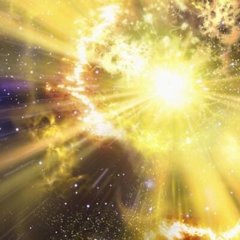-
Content count
18,725 -
Joined
-
Last visited
-
Days Won
293
About Apech
-
Rank
Luminous blob
-
That is awful news @Nungali
-
Eh? Aye!
-

Anybody else having connectivity problems lately?
Apech replied to Mark Foote's topic in Forum and Tech Support
There seem to be some technical problems with the site which probably need the owner to fix. The software hasn’t been updated, the license renewed and the email function is corrupted. I don’t know if these have given rise to the connectivity issues or not. -

Ungrounded despite grounding – is this a mismatch?
Apech replied to Kati's topic in General Discussion
With no tension you would collapse onto the floor. -
https://www.sofiatopia.org/maat/heavenly_cow.htm https://henadology.wordpress.com/wp-content/uploads/2010/02/celestial-cow.pdf
-

Ungrounded despite grounding – is this a mismatch?
Apech replied to Kati's topic in General Discussion
You haven’t seen the state of my brain. -

Ungrounded despite grounding – is this a mismatch?
Apech replied to Kati's topic in General Discussion
That was from AI I confess. Yes I agree no visualization. -
a little powder will hide your blushes
-

How do you know if a Qigong form truly fits you?
Apech replied to Kati's topic in General Discussion
carry on up the dojo -

Ungrounded despite grounding – is this a mismatch?
Apech replied to Kati's topic in General Discussion
**"Sung the body"** (often just "sung") refers to a core principle in Tai Chi and Qigong, where "sung" (鬆, sōng) means a deep, controlled release of tension throughout the body.[1][3] ## Core Meaning Sung goes beyond surface-level relaxation; it's about loosening joints from within, stretching tissues like rubber for elasticity without limpness or stiffness. This creates space for qi (energy) to flow freely, maintaining upright posture while feeling energized and alert.[2][5][1] ## In Practice Visualize elongating your spine, opening elbows, wrists, hips, and knees outward to release bound tension down to the bones. Practitioners describe it as yielding to gravity and heaven, mentally and physically, like a baby's natural softness.[3][1][2] ## Benefits Achieving sung improves flexibility, balance, and internal power (like "peng jing"), while reducing stress that blocks qi. It's foundational, practiced in stages from limbs to full-body-and-mind integration. -

Ungrounded despite grounding – is this a mismatch?
Apech replied to Kati's topic in General Discussion
Do you practice what I think you practice? -

Ungrounded despite grounding – is this a mismatch?
Apech replied to Kati's topic in General Discussion
gosh! well I like weird! But why would you suppress something that's happening naturally?












.thumb.jpg.7621d8e4dd2d0d878c4efc817a267564.jpg)












